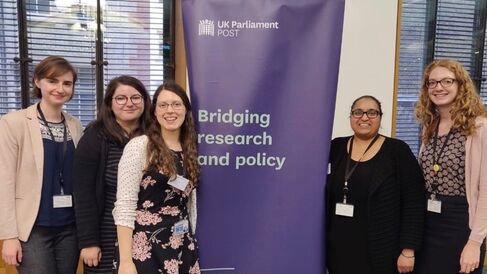From PhD to Parliament and back: A POST fellowship experience

By Amarpreet Kaur
26 January 2020
After patiently waiting two and half years, I finally applied and obtained a competitive fellowship at the Parliamentary Office of Science and Technology (POST) during the second year of my PhD. This opportunity was made available through the UK Research and Innovation policy internship scheme, supported by the Economic and Social Research Council. POST is Parliament’s in-house source of independent, balanced and accessible analysis of public-policy issues related to science and technology (Parliament UK, 2020a), and is based in Westminster. Thankfully, POST offers fellowships to PhD students and PostDocs to research, write and publish a four-page briefing document, formally known as POSTnote, for members of parliament and Peers (Parliament UK, 2020b). These briefing notes are impartial, non-partisan, and peer reviewed (in my case, by a total of 32 experts/professionals). While fellows do not normally write a POSTnote on their own topic of research, I was fortunate to know I would be doing so.
In preparation for my fellowship I diligently battled through my fieldwork so that it would be complete before I started working at POST. This was purposefully done so that my own research could inform my POSTnote and so that when returned I would only have to finish analysing my data to write up my thesis. I went through several months of non-stop work, but it was undoubtedly worth the effort. The knowledge from my research directly informed the content of my POSTnote, and the research I conducted during my time at POST will certainly inform the content of my thesis. At POST, within days of starting, fellows are required to conduct a literature review and arrange interviews with field experts (including academics, third sector organisations and Government departments). Following a sharp research phase, all the pertinent primary and secondary data gathered is condensed into a draft, which then undergoes an internal review before being sent for an extensive external review.
I was at POST when Parliament progued twice, when Brexit was supposed to happen (for the third time), and when the Westminster estate essentially shut down due to the climate change protests. Nonetheless, despite the political advents, I drafted my POSTnote on Human Germline Genome Editing and it was finally approved to be published in January 2020. Working at POST was an incredible, eye-opening experience into the world of policy. From start to finish there was not a dull moment. In addition to learning how to write about and present a significantly complex topic for a lay audience, I also took advantage of several other opportunities while I was on the Westminster estate. I attended prime minister’s questions (one where Boris Johnson was actually there), assisted with outreach events on how to get research into parliament, and had lunch on the palace terrace which overlooks the River Thames. I also used my parliamentary email address (which is akin to gold dust) to network with everyone in my field that I could think of, and many of those connections will be maintained.
My fellowship at POST has grounded my desire to work in policy, and I cannot wait to submit my PhD thesis so that I can go back to such a dynamic environment. I look forward to mediating rigorous research into policy and helping to create positive changes. I highly recommend a fellowship at POST to those interested in policy, and welcome any questions of my experiences there (askastudent@sociology.cam.ac.uk – and ask for “Amarpreet”!).
